Board of Directors
IRM Blogs
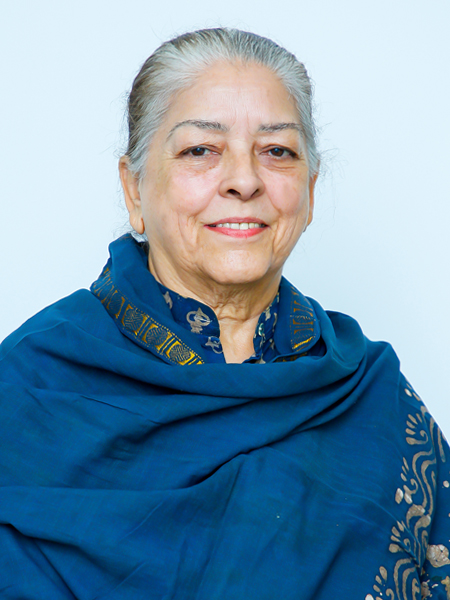
Dr. Shahida Jaffery is the Chairperson of the Institute of Rural Management and the founder of Sardar Bahadur Khan Women’s University (SBKWU) in Quetta, Baluchistan. She holds a PhD in Education from the University of the Philippines. She served as the first female Chief Executive Officer of the Baluchistan Rural Support Programme (BRSP) and has been involved in search committees for university Vice Chancellor appointments. Dr. Jaffery has held leadership positions in organizations like the All Pakistan Women’s Association (APWA) and Behbud Baluchistan, working for underprivileged women and children. She received the Tamgha-i-Imtiaz award and was nominated for various honors, including the Magsaysay Award. Currently, she serves as a Director and Advisor to the boards of several rural support programs.
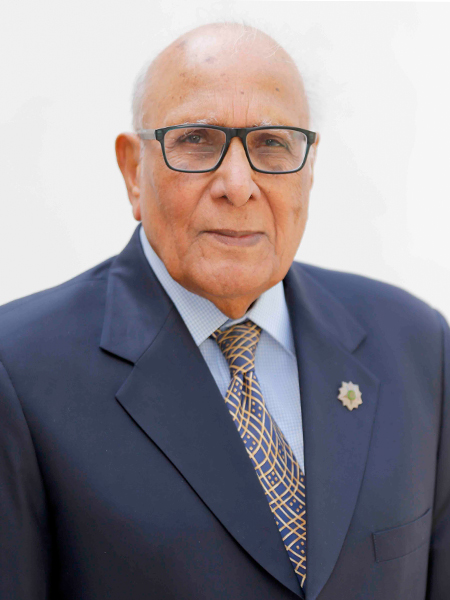
Mr. Shoaib Sultan Khan has served as a member of the Civil Service of Pakistan in different positions from 1955 till 1978. Later he joined UN and served as Social Development consultant of UNICEF in Sri Lanka (1979-82) and as Senior Adviser, South Asia Poverty Alleviation Programme (SAPAP) of UNDP (1994-2002). pursued academic studies at Universities of Lucknow, Cambridge, and Peshawar studying English Literature, Law and Public Administration. After his retirement from UN, Mr. Khan has been associated, in an honorary capacity, with Rural Support Programmes Network (RSPN), Institute of Rural Management (IRM) & other RSPs in Pakistan to date.
In 1982, Shoaib Sultan Khan initiated the Aga Khan Rural Support Programme (AKRSP) making a difference to the livelihood of a million people in the Northern Areas and Chitral (NAC) district of Pakistan. The development strategy pursued by AKRSP inspired replications in Pakistan and India currently improving livelihood of over 40 million rural households comprising nearly 200 million populations.
In recognition of his contributions, Mr. Khan was awarded various awards including, Sitara-e-Imtiaz, the Magsaysay Award, the World Conservation Medal, Hilal-i-Imtiaz, Nishan-e-Imtiaz, Lifetime achievements award by His Highness the Aga Khan and many more.
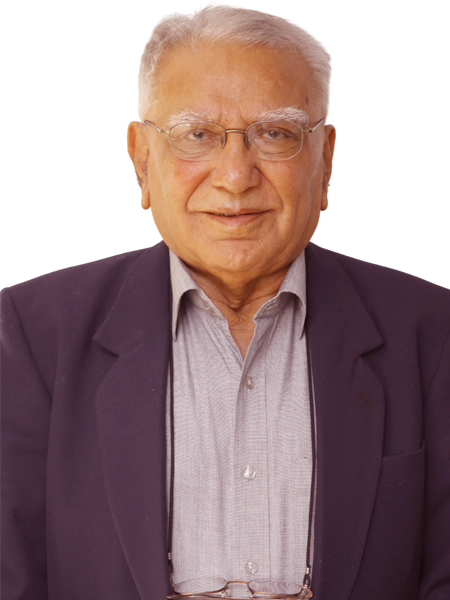
Mr. Nazar Memon holds an MA in Regional Planning from Clark University, USA, and has obtained diplomas in Comprehensive Regional Planning from the United Nations Center for Regional Development, Japan, and in District Health Planning from the Institute of Child Health, London, UK. He served as the Chief Executive Officer of the Sindh Rural Support Organization (SRSO) until 2008. As a Consultant for Capacity Building at the National Reconstruction Bureau (NRB), he contributed to the capacity building of elected representatives and government officials during the Devolution process in Pakistan, including the final draft of the Local Government Ordinance 2000. Mr. Memon has worked with UNICEF, focusing on social planning for women and children. He has also been involved in area-based development programs in Tanzania and Uganda. In his role as Head of Area Services in Kenya and South Africa, he played a part in programming, planning, implementing, and monitoring community-based projects in collaboration with local communities.
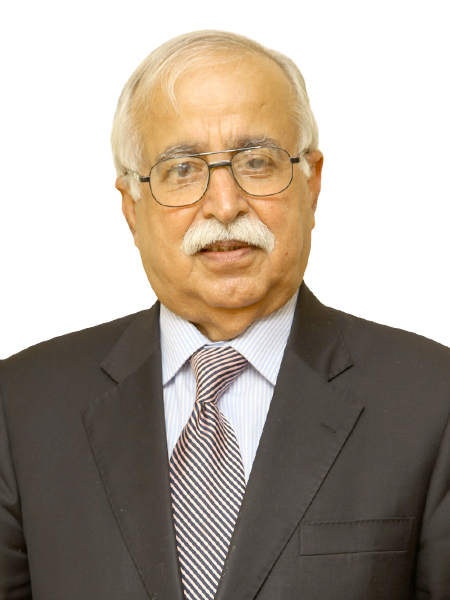
Mr. Fazalullah Qureshi holds MA Economics from the Sindh University and a Certificate in Development Economics from Glasgow University UK. He has completed Fellowship in Development Economics from World Bank’s Economic Development Institute (EDI) Washington. Mr. Qureshi was appointed as the Vice Chairman National Electric Power Regulatory Authority (NEPRA) in 2001 and has served as the Federal Secretary Planning & Development twice. He was also the Chairman of National Tariff Commission in 1999. He is an active BOD Member of various organizations including Sindh Rural Support Organization, Pakistan Poverty Alleviation Fund, Rural Support Programme Network, NRSP Microfinance bank, National Rural Support Program and Sindh Graduate Association. He is also a Member of Trust for Voluntary Organization.
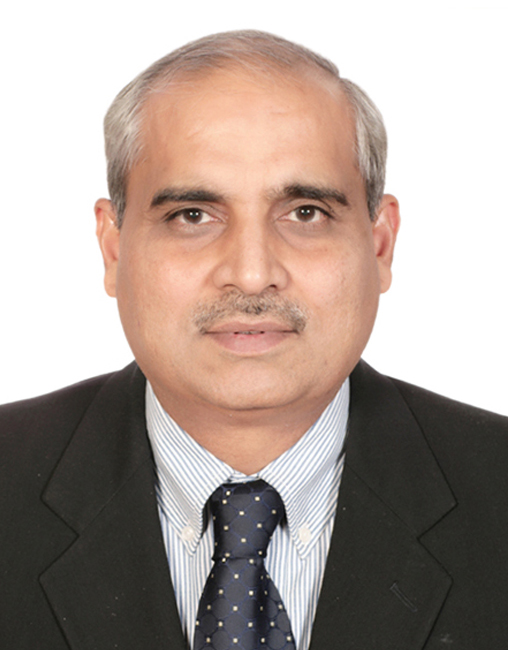
Dr. Rashid Bajwa is leading one of the largest development programme: National Rural Support Programme (NRSP) in Pakistan. He holds an MPH degree from the UK and an MBBS from Pakistan. He has extensive experience in the fields of management, social mobilisation, community development, microfinance and policy. Dr. Bajwa is implementing one of the largest microfinance programmes in Pakistan. He has helped in setting up Khushaali Bank, while also providing guidance to other non-profits Director of Khushaal Pakistan Fund, Punjab Rural Support Programme, Sindh Rural Support Organisation, Ghazi Barotha Tarqiati Idara and Rural Support Programmes Network.

Dr. Syed Kaleem Imam holds a PhD in Politics and International Relations, an LLM degree in Human Rights Law from SOAS, UK, and an LLB and master’s degree in Philosophy.
He shares his understanding and research regularly at various training institutes and public forums, as well as in print and electronic media. He is the author of several publications both nationally and internationally. A 33-year career of exemplary service characterized his career. A former police officer and Federal Secretary of the Narcotics Control Ministry, he is a civil servant with extensive experience in the field. His national experience includes serving as SSP in Islamabad, Rawalpindi, Quetta, Sibi and Nasirabad; Additional Director Immigration, Chief Security Officer to the Prime Minister, Deputy Director General, Intelligence Bureau, Director of National Public Safety Commission; Inspector General Islamabad, Punjab, Sindh, and National Highways and Motorways twice. During his time with the United Nations, he served as Chief of Operations in Mozambique, Planning Coordinator in Liberia, and UN Police Commissioner in Darfur, Sudan. He has been decorated with three UN peace medals, the Quaid Azam Police Medal, the President’s Police Medal, and the Tamagha-i-Imtiaz for national distinguished service. He is well-known as an academic, a practicing lawyer, a security analyst, a strategist, and a policy practitioner.
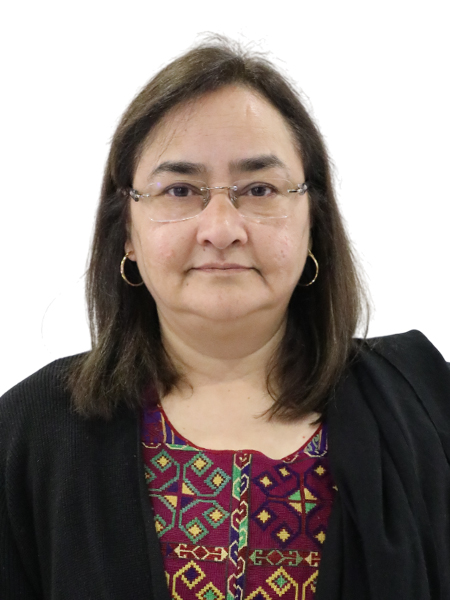
Ms. Shandana Khan, CEO of Rural Support Programmes Network (RSPN). She holds a Master’s degree from the University of Cambridge and a Masters in International Public Policy from Johns Hopkins University. Ms. Khan possesses extensive experience in rural development, spanning grassroots to policy levels. Her expertise lies in project management, design, and social assessment. She actively engages in policy advocacy with donors, government bodies, and institutions. She has made strategic contributions to poverty reduction strategies, local governance ordinances, gender mainstreaming policies, and social mobilization initiatives. Ms. Khan emphasizes meaningful partnerships between marginalized communities, the government, and the private sector. As a strong team player and leader, Ms. Khan manages a diverse team of over 100 professionals at RSPN. With her multicultural exposure and fluency in English, Urdu, and Pushto, she is comfortable operating in diverse settings.

Mr. Hidayat Ullah’s professional journey encompasses a rich tapestry of roles that showcase his versatility. Notably, he held significant positions as Programme Analyst, Project Management Specialist and National Coordinator for the Early Recovery Cluster at UNDP, making valuable contributions to community restoration endeavors. His impact extends to the governmental realm, having served as Chief of Section at the Planning & Development Department under the Government of Balochistan, Pakistan. Additionally, his dedication to social development is evident through his managerial role at Actionaid Pakistan, where he oversaw the Community Development and Sponsorship Unit. This commitment to regional advancement is a consistent thread in his career, demonstrated by his leadership in projects like the Balochistan Trial District Management Project for UNDP and his role as Chief Coordinating Officer, leading the Balochistan Groundwater & Trickle Irrigation Project (ADB).
Underpinning his achievements is a strong academic foundation. Mr. Hidayat Ullah holds a Master of Science in Agricultural Economics from Oklahoma State University, USA, and an MS in Statistics from the University of Balochistan, Quetta. Proficient in English, Urdu, and Pushto languages, his diverse skill set contributes to his multifaceted contributions.
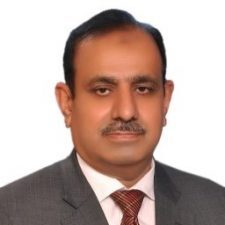
Dr. Jamil holds a Ph.D. in Artificial Intelligence from the Department of Electrical and Electronics Engineering at Kings’ College London, UK, complemented by M.Sc. degrees in Informatio n Technology from the University of Warwick, UK, and Computer Sciences from the University of Peshawar. His illustrious career spans over 25 years, encompassing a rich blend of roles in Administration, Research, Teaching, and Project Management at renowned institutions such as Ghulam Ishaq Khan (GIK) Institute, the University of Bahrain (Kingdom of Bahrain), Iqra University Islamabad, Abasyn University Pakistan, and Kohat University of Science and Technology (KUST).
Dr. Jamil is a prolific scholar, having contributed significantly to the academic world with the publication of over 120 papers and book chapters across the domains of Science, Engineering, and Technology in esteemed international journals and refereed conferences. His dedication to advancing knowledge is underscored by the successful procurement of research grants from various organizations, including the National Information and Communication Technology (ICT) R&D Fund, HEC-British Council linkage program, and the UK Government’s PMI 2 program. Throughout his distinguished career, Dr. Jamil has taken on pivotal roles, notably as Dean of the Faculty of Computer Engineering at GIK Institute, where his dynamic leadership played a crucial role in the institution’s development. His tenure as Vice Chancellor of Abasyn University Peshawar saw the establishment of a robust academic framework and the inauguration of a new campus in Islamabad, with HEC’s endorsement.
Currently, he serves as Vice Chancellor at KUST. Dr. Jamil’s eminence in his field has been duly recognized with prestigious accolades, such as the Charles Wallace Pakistan Trust Visiting Fellowship in the UK (2012-13) and the International Visiting Leadership Program (IVLP) Fellowship in the USA (August 2007).
His wealth of experience extends to the establishment of student exchange programs, bridging universities within Pakistan and across international borders. Currently, he holds the position of Vice Chairman at the National Computing Education Accreditation Council (NCEAC), Pakistan, where he plays a pivotal role in shaping policies and curricula for computing programs at the national level.

Ms. Fareena Mazhar With a background spanning over 36 years in civil service, extensive leadership experience, and a track record of driving transformative initiatives, Ms. Fareena’s professional journey has afforded her the opportunity to serve in key roles across various ministries and organizations, including the National Heritage and Culture Division, Board of Investment, Ministry of Commerce, Pakistan Electronic Media Regulatory Authority, Prime Minister’s Office, and Federal Board of Revenue. Notably, she has been recognized by the World Bank as one of the world’s five women leaders who have played pivotal roles in delivering essential regulatory reforms that benefit entrepreneurs. Her educational qualifications, including an MBA in Marketing and Finance from COL, Canada, a Diploma in National Security from the National Defence University, and a Diploma in HRM from the National University of Science and Technology, have equipped her with a strong foundation for strategic leadership.
Fareena’s achievements and initiatives underscore her commitment to driving positive change. She has led efforts to improve Pakistan’s business climate, resulting in a significant leap in the Ease of Doing Business Ranking. She has contributed to the formulation of critical policies, including the National Policy on Culture and Tourism for Economic Growth and Pakistan’s first Investment Policy post-decentralization. Additionally, she has played a central role in establishing Special Economic Zones and creating the Investor Management Information System at the Board of Investment.
Fareenas leadership contributions extend beyond national borders, where she has represented Pakistan in international forums and dialogues. She has led Pakistan’s delegation in the D-8 Investment Forum in Turkey, the High-Level Strategic Cooperation Council on Bilateral Trade and Economic Cooperation in Turkey, and the Dialogue on “Construction and Housing through Sustainable Development” in Dubai Expo. Her engagements also include leading Trade and Investment Conferences in Central Asian States and Sri Lanka, and she has been a featured speaker at the Path to Recovery event by the World Bank.
Fareenas key skills encompass marketing, negotiation, problem-solving, project management, policy making, and reform designing and implementation. These competencies, combined with her extensive experience and leadership acumen, position her as a valuable asset for any organization.
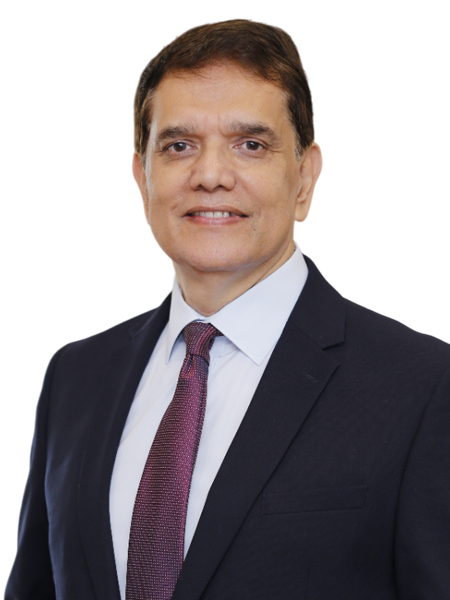
Dr. Roomi Saeed Hayat is Chief Executive Officer Institute of Rural Management. He holds multiple degrees including a Master’s of Science in Mechanical Engineering from New Jersey Institute of Technology, USA. He has also completed a diploma from Harvard University, USA. Doctorate in Anthropology. Dr. Hayat possesses 38 years of experience working in the Government and Non-Government sectors of Pakistan and his areas of expertise include rural development, women empowerment, environment and poverty reduction. He has served as advisor on International assignments for various bilateral and UN agencies.
Dr. Hayat is Chairman of IUCN Pakistan National Committee, he is the founding Chairman of an international think tank Human Resource Development Network (HRDN). He is a member of the Board of Directors of the Rural Support Programmes Network (RSPN).
Dr. Hayat specializes in livelihoods and poverty reduction with strong expertise in fostering Community Based Organizations, developing need based innovative livelihoods programmes, and formulating short cycle employable vocational and technical skills training. He has designed and conducted over 500 short- and long-term training programmes in more than 20 countries and has extensive multi-disciplinary experience of managing and executing donor funded projects including UNDP, ILO, USAID and World Bank with a special focus on livelihoods, rural development with gender as a cross cutting theme.

